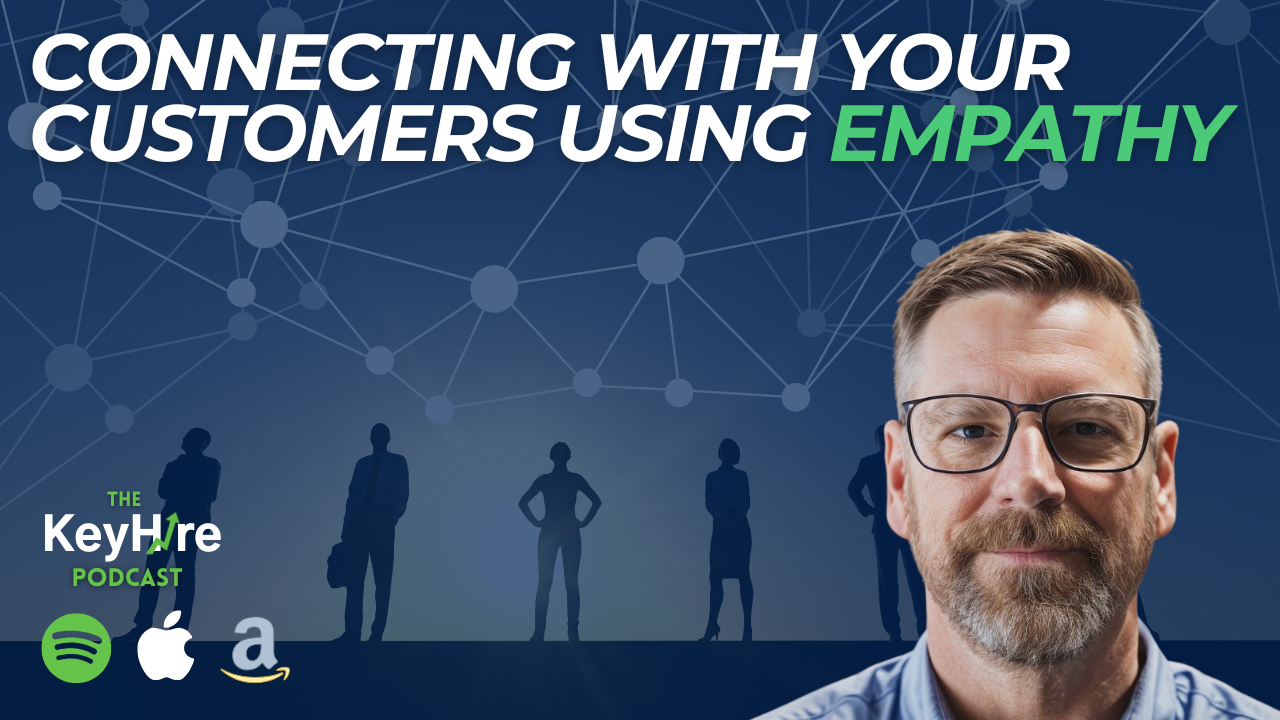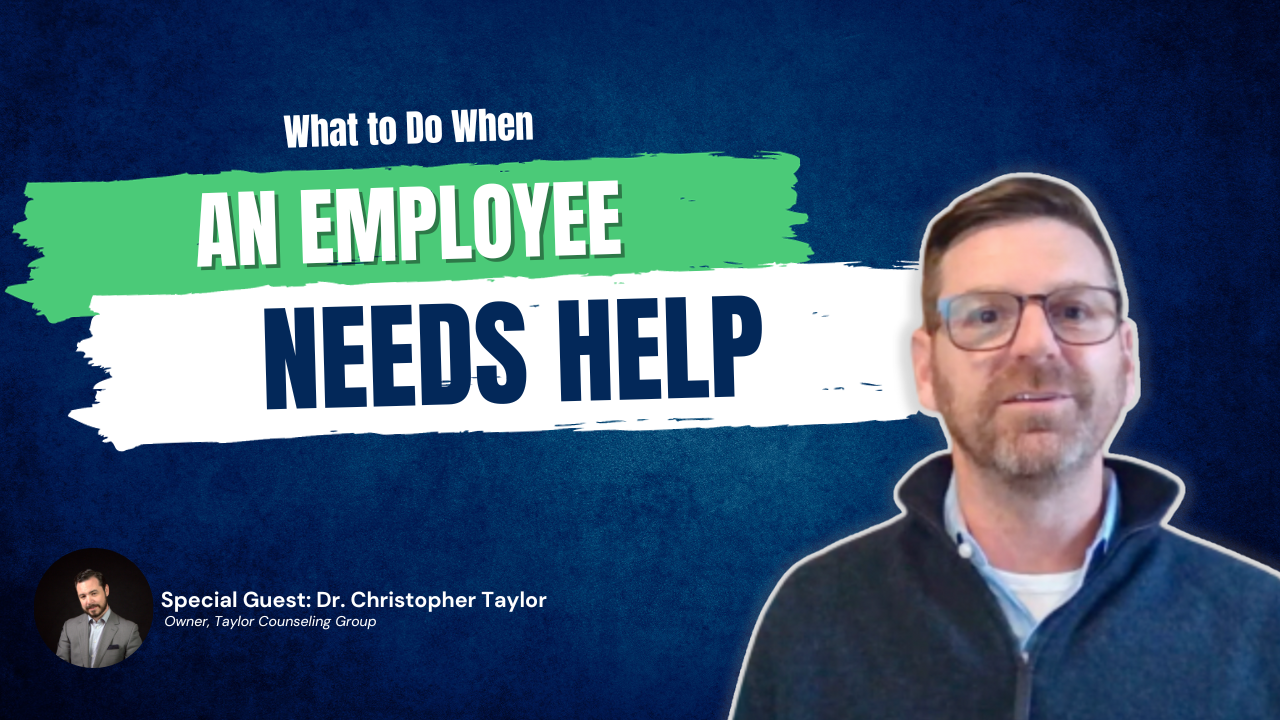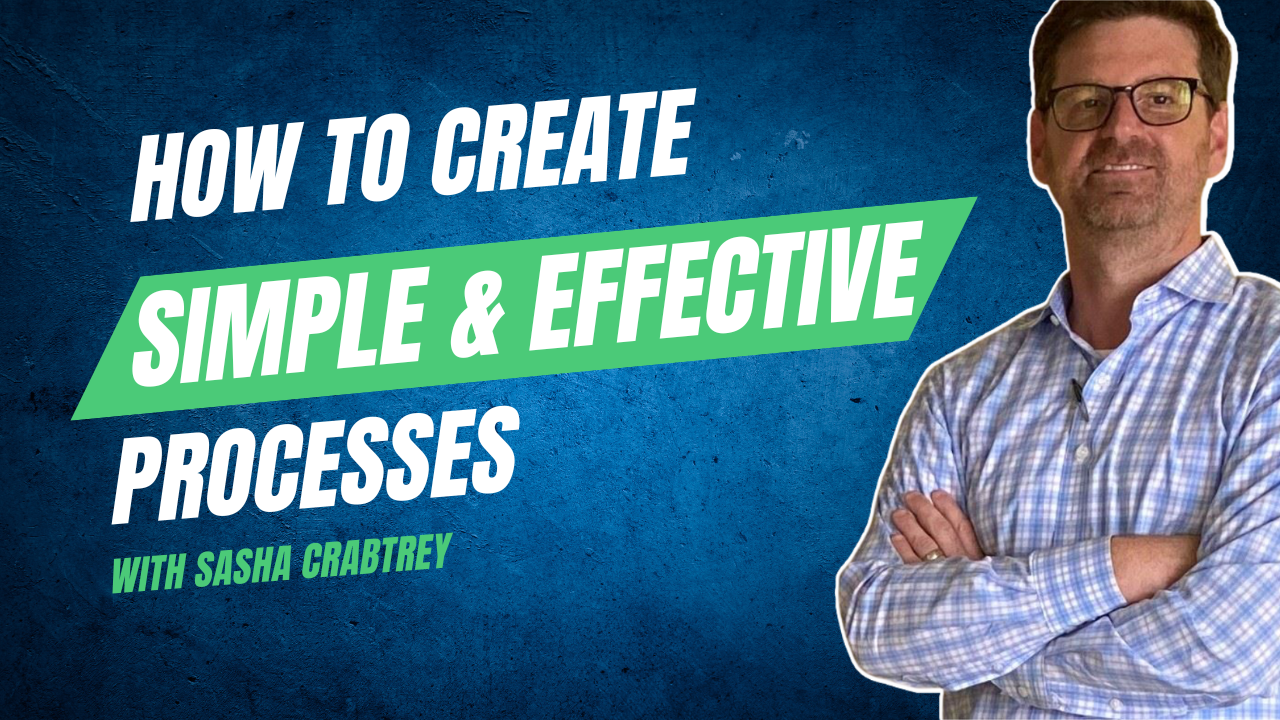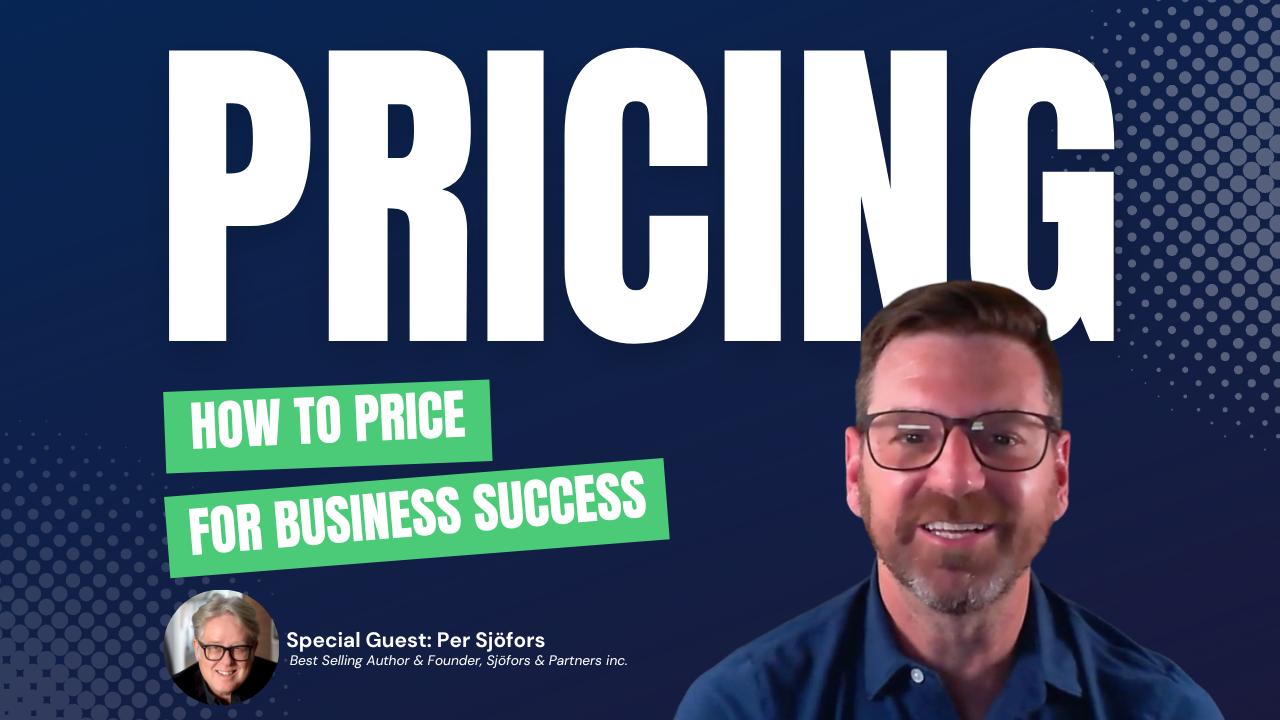admin • September 20, 2021
“It’s Not Me… It’s You.”
We thought we would spotlight and issue that we come up against pretty regularly. “It’s not me. It’s you.” A small business owner that created business. They’ve been grinding blood, sweat and tears for years to get a thriving business. And then for whatever reason, they hit a wall. When we start a business, we often […]
The post “It’s Not Me… It’s You.” appeared first on KeyHire Solutions.

As businesses grow, they often face a difficult challenge. Some of the key players who helped build the company may struggle to keep up with its evolving demands. This was the focus of a recent episode of The KeyHire Small Business Podcast, hosted by Corey Harlock, featuring guest Chris Leonard, owner and principalconsultant at No Impediments. The discussion centered on the transition from personality-driven leadership, where key individuals wear multiple hats, to role-based leadership, where clear roles and responsibilities help businesses scale effectively. The Growing Pains of Leadership Has your business outgrown the capabilities of the people who helped you build it? This is a common issue for entrepreneurs. Initially, small businesses thrive on flexibility where team members pitch in wherever needed, wearing multiple hats. However, as the company grows, its demands often exceed the capabilities of these early contributors. Leaders must recognize when it’s time to redefine roles and introduce structured leadership to ensure sustainable growth. Key Insights from the Podcast 1. The Shift from Personality-Based to Role-Based Leadership Chris Leonard explains how businesses start with charismatic, high-energy leaders who take on various responsibilities. However, these individuals can become bottlenecks as the company scales. Key Takeaways: Early-stage businesses prioritize flexibility, while growing companies need clear, role-based structures. Leaders must shift from being "the face of everything" to building a strong, independent team. The transition involves recognizing when to delegate and defining clear roles for existing employees. 2. Identifying the Right People for the Right Roles A common challenge is legacy employees struggling to keep up. While their contributions were invaluable in the early stages, their current skill set may not align with the company’s needs at scale. Key Takeaways: Map out all business functions and identify where employees excel. Separate passion and competency from day-to-day responsibilities to ensure employees are in roles they enjoy and can thrive in. Avoid stretching key players too thin by assigning them responsibilities outside their core strengths. 3. The Importance of Organizational Design Leonard suggests using an Org Design Workshop to map out necessary business outcomes and align roles accordingly. Steps to Implement Organizational Design: Define Business Outcomes: Identify what results are needed for success (e.g., increasing leads, improving customer retention). Create Role-Based Responsibilities: Assign duties based on skill sets rather than personalities. Communicate Role Changes Clearly: Engage legacy employees in the transition process to ensure buy-in and minimize friction. 4. Effective Communication & Leadership Development Business owners often assume their team understands their thought process , but major organizational changes require clear communication. Key Takeaways: Don’t wait until employees struggle—start conversations early about the company’s evolution. Provide leadership development opportunities to prepare employees for their evolving roles. Use third-party facilitators (coaches, consultants) to navigate difficult transitions. Growth Requires Evolution Businesses must evolve their leadership structures to keep pace with expansion while honoring the contributions of early team members. By shifting to role-based leadership, clearly defining responsibilities, and fostering open communication, companies can scale effectively without losing their culture. To learn more, listen to this episode of The KeyHire Small Business Podcast here.

Are you thinking about selling your business? If so, you’ll need to get a valuation, and that process can seem like voodoo to the average business owner. Understanding what goes into a business valuation, the factors that impact your company’s worth, and common misconceptions can help you prepare for a successful sale. Corey Harlock sat down with Len Bruskiewitz, a business coach and exit planning advisor, to demystify the valuation process. What is a Business Valuation? Simply put, a business valuation is what a potential buyer is willing to pay for your company. The key takeaway? You don’t set your business’s value—the market does. While there are different valuation methods, the most common for small businesses is a multiple of earnings (specifically, EBITDA—Earnings Before Interest, Taxes, Depreciation, and Amortization). How Companies Are Valued Business valuations typically consider two major components: 20% External Factors: These are things like industry trends, market positioning, and reputation—elements that are visible from the outside. 80% Internal Factors: These are the intangible aspects of the business, including operations, customer base, and leadership structure. Bruskiewitz explains that the four key intangible factors that drive a business’s value include: Operational Structure –Are processes documented? Can someone else step in and run the business without the owner? Customer Base & Revenue Model –How diverse is your customer base? Do you have recurring revenue or do you rely on one-off sales? Company Culture & Leadership –Is there a strong management team in place, or does everything depend on the owner? Team Expertise & Knowledge –Does your team have specialized skills that differentiate your business in the market? The Most Common Valuation Mistakes Business Owners Make Messy Accounting –Poor financial records are a huge red flag for potential buyers. Buyers will conduct forensic accounting, so getting your books in order well in advance is essential. Owner Dependence –If your business can’t run without you, it’s not valuable to a buyer. A strong management team is critical to ensure a smooth transition. Overestimating Value –Nine out of ten business owners overvalue their companies. Many believe their business is worth 10x revenue when the market might say it’s closer to 3x earnings. How to Increase Your Business Value Before Selling If selling is in your future, start preparing now—ideally three years in advance. Bruskiewitz recommends focusing on these four areas: Personal Readiness –Define what’s next for you after selling the business, whether it’s retirement, starting another venture,or consulting. Business Optimization –Shed unprofitable services, focus on your highest-margin revenue streams, and build a scalable operation. Financial & Process Organization –Clean up your accounting, document your key processes, and start tax planning early to maximize post-sale proceeds. Leadership Development –Build a strong management team that can run the business without you. If your phone rings constantly while you’re on vacation, your company isn’t ready to sell. Selling a business isn’t an overnight decision —it requires careful planning and strategic execution. The goal? Leave on your terms, on your timeline, with the highest possible valuation. If you’re wondering where to start, Bruskiewitz offers a free business valuation calculator on his website, Greater Heights Coaching. In just 15 minutes, you can get a rough estimate of your business’s current value and actionable steps to increase it. For more expert insights on growing and selling your small business, watch this episode of The KeyHire Small Business Podcast

When it comes to connecting with customers, many experts will tell you to identify their pain points, position your service as the solution, and avoid hard selling. While this is all sound advice, there’s another level of connection that often goes overlooked— empathy . The Power of Empathy in Business Empathy is the ability to understand and share the feelings of another. In business, this means seeing your product or service from your customer’s perspective, acknowledging their challenges, and providing solutions that genuinely help them. It’s not about selling—it’s about understanding, guiding, and supporting. Jim Matuga, president and founder of Interaction Media, recently joined The Key Hire Small Business Podcast to discuss how businesses can use storytelling to connect with customers in a more meaningful way. According to Jim, most companies communicate well, but few truly connect. The difference? A compelling story that makes the customer the hero. Shifting the Focus: Your Customer is the Hero A common mistake in marketing is making your brand the star of the story. You highlight your accolades, your years of experience, and your state-of-the-art equipment. While these elements may establish credibility, they don’t necessarily connect with the customer’s needs. Instead, you need to shift the focus.Your customer should be the hero of the story, and your company should act as the guide that helps them succeed. For example, rather than showcasing a fleet of company vehicles on your website, imagine sharing a story from a satisfied customer:“Our heating system went out in the middle of winter, and within 15 minutes, they answered our call. An hour later, we had heat again. We’ll never call anyone else.” That is a story that builds trust, demonstrates reliability, and resonates on an emotional level. Establishing Authority Without Losing Empathy A crucial part of effective marketing is establishing authority—but authority doesn’t mean arrogance. Customers don’t want to hear about how great you are; they want to know that you understand their problem and can provide a solution. Jim uses the analogy of a mountain climbing guide. Imagine you arrive at base camp, preparing to climb Mount Everest. Oneguide tells you, “ I’ve never done this before, but I think we should take the east route. ” The other says, “ A storm is coming, so we’re taking the western route. I’ve done this climb dozens of times, and I have the supplies and experience to get us there safely. ” Which guide would you trust? Authority isn’t about boasting—it’s about showing customers that you understand their challenges, have a proven track record, and are prepared to help them navigate their journey. Mistakes to Avoid When Connecting with Customers Even with the best intentions, businesses often make mistakes when trying to connect with their customers. Here are a few common ones: Focusing too much on your brand –Instead of listing your achievements, showcase customer success stories. Overcomplicating the message –Keep it simple. Customers should immediately understand how you can help them. Failing to listen –Take the time to understand customer needs before offering a solution. Being inconsistent –Your messaging across different platforms should feel cohesive and authentic. Ignoring feedback –If your marketing isn’t resonating, adjust based on customer reactions and engagement. How to Get Started: Practical Steps If you’re looking to improve the way you connect with customers, here’s where to start: Embrace storytelling–Use real-life examples of how your product or service has helped customers. Leverage technology –Tools like AI-powered content generators can help craft compelling messages. Be where your customers are –Identify the social media platforms they use most and engage there. Listen and adapt –Pay attention to feedback and adjust your approach accordingly. In today’s business world, empathy is one of the most powerful tools you can use to connect with customers. It transforms marketing from a transactional process into a relationship-building experience. By making your customer the hero, demonstrating genuine understanding, and guiding them toward success, you can build trust and loyalty that lasts. Want to learn more? Listen to this episode of The Key Hire Small Business Podcast featuring Jim Matuga

Running a small business is a multifaceted challenge that requires wearing many hats. Often, small business owners find themselves juggling a wide range of tasks, both major and minor. While this can be necessary in the early stages of your business, as your company grows, it's crucial to delegate minor responsibilities to employees to free up your time for more strategic tasks. Identify Minor Responsibilities The first step in the process is to identify tasks that can be classified as minor responsibilities. These tasks are typically repetitive, time-consuming, or don't require your unique expertise. Some examples might include administrative duties, data entry, social media management, and basic customer service. Prioritize Your Time Once you've identified minor responsibilities, assess your daily or weekly schedule and prioritize tasks that only you can do. This might include business strategy, high-level decision-making, building relationships with clients or partners, and managing the overall direction of your company. By clarifying your priorities, you'll be better equipped to delegate effectively. Evaluate Your Team To delegate successfully, you need to have confidence in your team's abilities. Assess their skills, experience, and willingness to take on new responsibilities. Consider conducting one-on-one discussions with employees to gauge their interest in specific tasks. Their input can provide valuable insights into where they may excel. Communicate Clearly Effective delegation hinges on clear communication. When transferring minor responsibilities, be explicit about your expectations, the desired outcome, and any relevant guidelines or procedures. Make sure your team understands why you're delegating and how it aligns with the business's goals. Provide Training and Resources If employees are taking on new tasks, ensure they have the necessary training and resources to succeed. Offer guidance, documentation, or access to training programs as needed. By investing in your team's development, you increase the likelihood of a smooth transition. Encourage Autonomy While it's essential to provide guidance, it's equally important to trust your team to take ownership of their responsibilities. Encourage autonomy and grant them the freedom to make decisions within their delegated roles. This not only empowers your employees but also reduces the need for constant supervision. Monitor Progress and Provide Feedback Maintain an open line of communication with your team to monitor their progress. Regular check-ins and feedback sessions can help identify any issues early on and make necessary adjustments. Offering constructive feedback and acknowledging achievements can boost morale and motivation. Create Accountability Hold your employees accountable for their delegated tasks. Implement key performance indicators (KPIs) and establish deadlines to ensure they stay on track. Accountability not only keeps your team focused but also helps you evaluate the effectiveness of the delegation process. Learn to Let Go One of the most challenging aspects of transferring responsibilities is learning to let go. Trust your team to handle the tasks you've assigned to them. Understand that they may do things differently, and that's okay as long as the results meet the defined standards. Continuously Evaluate and Adjust Delegation is not a one-time process but an ongoing effort. Regularly evaluate the effectiveness of the tasks you've delegated and make adjustments as necessary. As your business grows, your team's capabilities and responsibilities may evolve, so be prepared to adapt your approach. Transferring minor responsibilities to employees is a critical step in the growth of your small business. By doing so, you free up your time to focus on strategic and high-impact tasks that can drive your company forward. Through clear communication, training, trust, and accountability, you can empower your team to take ownership of these responsibilities, ultimately contributing to the success of your business. Delegation is not a sign of weakness but a strategic move that allows you to unlock your business's full potential. Learn More About Jeff: https://www.coreauthenticity.com/ Schedule a Free Consultation







